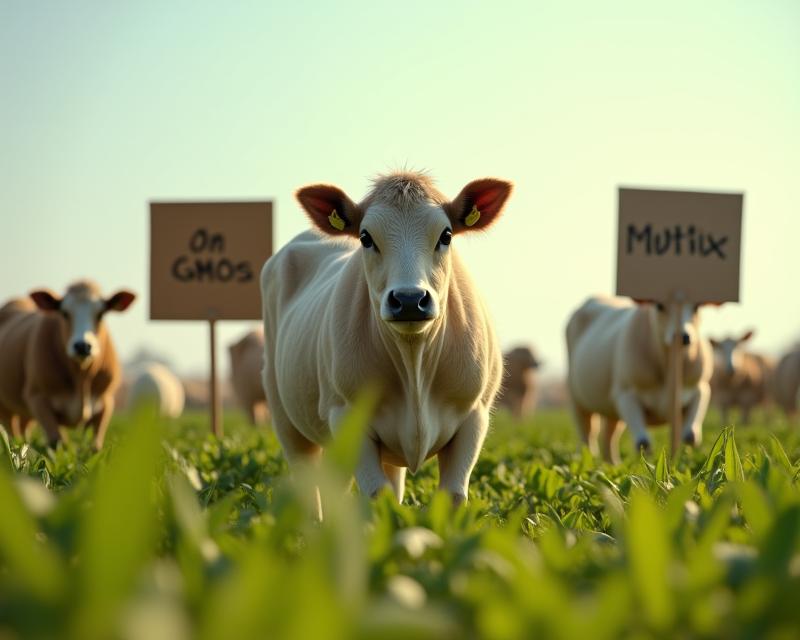Greenpeace & GMOs: A Farmer's Perspective
Publish in Sustainable Farming el 21/07/2025 20:40
Greenpeace & GMOs: A Farmer's Perspective
For many of us in agriculture, the topic of Genetically Modified Organisms (GMOs) can be complex and sometimes controversial. One organization that has been a vocal opponent of GMOs for decades is Greenpeace. Understanding their history and campaigns can help us all navigate the evolving landscape of food production and make informed decisions about our farming practices.

Greenpeace's History of Opposition
Greenpeace’s opposition to GMOs began in the mid-1990s, shortly after the first commercially available GMO crops emerged. Their concerns centered around potential environmental impacts, human health risks, and corporate control over the food supply. They’ve consistently argued that GMOs pose risks to biodiversity, can lead to herbicide-resistant weeds, and concentrate power in the hands of large agricultural companies. They've launched numerous campaigns targeting companies like Monsanto (now Bayer), protesting their research, development, and marketing of GMO seeds.
Key Campaigns and Protests
Greenpeace's activism has taken many forms, including direct action, protests at research facilities and corporate headquarters, and public awareness campaigns. They've staged demonstrations disrupting field trials of GMO crops, highlighting their concerns about potential contamination of non-GMO crops and the impact on farmers who choose not to use GMO seeds. Their campaigns often involve exposing alleged environmental damage caused by GMO cultivation, such as the increased use of herbicides like glyphosate.
Policy Influence and Farmer Concerns
Greenpeace has actively lobbied governments worldwide to restrict the cultivation and use of GMOs. While they haven't always achieved complete bans, their campaigns have contributed to stricter regulations and labeling requirements in many countries. As farmers, it's important to be aware of these regulations and how they might affect your operations. While Greenpeace's perspective is critical of GMOs, it's valuable to consider their concerns alongside the potential benefits that GMOs can offer, such as increased yields, pest resistance, and reduced pesticide use in some cases. Ultimately, informed decision-making requires understanding all sides of the issue.
What Does This Mean for You?
Whether you choose to grow GMO or non-GMO crops, understanding the history and arguments surrounding GMOs is crucial. Stay informed about regulations in your region, consider the potential impacts on your farm, and engage in constructive dialogue about the future of agriculture. Resources from both Greenpeace and agricultural organizations can provide valuable insights. The conversation around food production is constantly evolving, and staying informed is key to a sustainable future for farming.





